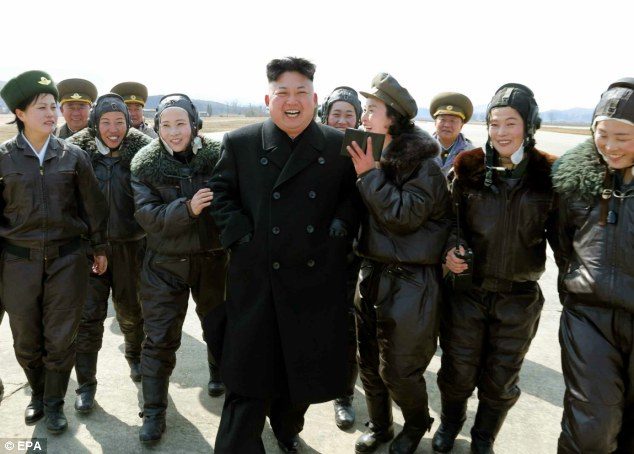“Ironically, the threat of a nuclear confrontation with North Korea could push the rest of the world in the direction of cooperation and realignment.”
In his meeting with China’s president, Xi Jinping, President Trump discussed the situation with North Korea. Although the two leaders reached no announced agreement, there are clear indications of back channel negotiations and discussions in the works.
Rising tensions in the region—and especially since the Tomahawk missile strike on Syria—have made political negotiations on the North Korean issue a top priority.
Immediately after the military action taken against Syria, Russia—alongside China and Iran—condemned the operation. The Syrian-aligned countries went as far as to state they would take severe action if the US crossed “their” red lines. The statement was a direct warning to the US.
Russia initially released a statement that they would bolster Assad’s air defenses. Now, days later, the situation has somewhat reset. The Moscow Times reports that the head of the Russian Federation Council’s Defense and Security Committee says Russian armed forces based in Syria will not attempt to intercept any American missiles if Washington orders another airstrike.
Russian Senator Viktor Ozerov told the news agency Interfax, “Our armed forces are in Syria to fight terrorism, not to defend against external threats. That’s not our mandate, and we’re not going to intercept anything.”
Secretary of State Tillerson told CBS’s Face the Nation that when Donald Trump and Xi Jinping met at the Mar-a-Lago resort recently, they “had extensive discussions around the dangerous situation in North Korea. President Xi Jinping clearly understands, and I think agrees, that the situation has intensified and has reached a certain level of threat that action has to be taken.”
China has the greatest influence on the North Korean situation through their financial and material supply. It has long been known that any resolution of the nuclear threats from North Korean leader Kim Jong-un will include China. North Korea is dependent on China for foreign currency. With the many international sanctions against Kim’s regime, China holds the keys.
The Trump administration has been pressuring China to do more to rein in North Korea, which sends the vast majority of its exports to its giant neighbor across the Yellow Sea. Following repeated missile tests that drew international criticism, China banned all imports of North Korean coal on Feb. 26, cutting off the country’s most important export.
US president Donald Trump and Chinese president Xi Jinping were discussing North Korea at Trump’s Mar-a-Lago resort. On the same day as the meeting between Xi Jinping and Trump, China took stronger action to curb coal traffic between China and North Korea. China’s customs department issued an official order on April 7 telling trading companies to return their North Korean coal cargoes.
Subsequently, a fleet of North Korean cargo ships headed home to the port of Nampo still fully loaded after China ordered its trading companies to return coal from the isolated country.
Additionally, as a US Navy strike group headed to the region in a show of force, China and South Korea agreed to construct tougher sanctions on North Korea if it carries out nuclear or long-range missile tests, a senior official in Seoul said.
A source at Dandong Chengtai, one of China’s biggest buyers of North Korean coal, said the company had 600,000 tons of North Korean coal sitting at various ports, and a total of two million tons was stranded at Chinese ports.
North Korea is a significant supplier of coal to China, especially of the type used for steel-making, known as coking coal. To make up for the shortfall from North Korea, China has ramped up imports from the United States. This is an unexpected windfall for President Trump, as it helps revive the US coal sector.
China, further restricting North Korea’s economy, could push the North Korean regime into collapse. That possibility has been a serious problem for the Chinese government, as it would most assuredly cause a massive influx of North Korean refugees into China.
It is unclear exactly what decisions have been made, but China may have weighed those possibilities and decided taking action against the Kim regime is a necessary risk. A nuclear conflict on the Chinese border is a much greater danger than the refugee crisis that the collapse of the regime would cause.
It is clear that serious negotiations are occurring in the back channels between Russia, the US, South Korea, and China. All see the problem of North Korea and its aggressive and unpredictable leader, Kim Jong-un.
The world is readjusting to the situation. Old enemies are reassessing their relationship out of necessity. Ironically, the threat of a nuclear confrontation with North Korea could push the rest of the world in the direction of cooperation and realignment. There is that old saying that applies here: “The enemy of my enemy is my friend.”

















